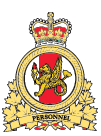Editor’s Corner
For more information on accessing this file, please visit our help page.
Welcome to the Summer 2017 edition of the Canadian Military Journal, in a summer chock full of celebrations as we commemorate our 150th birthday as a confederated nation. The rather flamboyant CF-18 Hornet on the cover, looking very festive in its ‘birthday suit,’ is being flown by Captain Matthew “Glib” Kutryk, the 2017 Royal Canadian Air Force Demonstration Jet Pilot, over the wilds of northern Alberta on 6 April.
With respect to our current issue, we lead with a section of major articles entitled “The world in which we live.” Specifically offered are a brace of studies focusing upon Russia’s recent military actions in the contemporary security environment, supposedly based upon perceived challenges, which begs the question, is Russia embracing the Western concept of ‘hybrid warfare’? Both studies are penned by individuals with significant expertise on the subject; the first by a senior intelligence officer, and the second, by a highly experienced retired infantry officer.
Then, a team of scholars from the Canadian Forces College in Toronto takes a fresh look at the totalitarian communist regime in North Korea and the considerable and worrisome resources they have invested in their nuclear program, which has yielded various sanctions and international embargoes against the state. However, “…the authors of this article will demonstrate that the fundamental ideology underpinning the North Korean regime serves both to justify the possession of nuclear weapons and to reinforce the regime’s legitimacy.”
Next, Andrew Fraser, a graduate of the Schulich School of Law at Dalhousie University, with graduate degrees in history and international affairs, examines “…the reasons for the shocking rise in the use of child suicide bombers in Afghanistan. Specifically, Fraser maintains that it is Pakistan’s faltering education system that forces families to send their sons to madrassas or other boarding-type schools in the tribal areas located in or near the western part of Pakistan. From here: “Once away from home and isolated, these children are vulnerable to the predatory advances of cold-blooded recruiters who often act with the forced or willing assistance of community authority figures.”
Defence scientist Dominik Pudo and combat engineer Jake Galuga then explore the fascinating world of high energy laser systems for use as directed energy weapons. After careful examination, the authors conclude that, after decades of research and development, “…high energy laser weapons have begun to make their irreversible transition onto the battlefield. Whether they will proliferate towards commonly-used systems, or settle in a niche for specific applications still remains open for discussion. However, their fielding as part of armed forces is now a matter of fact.”
Moving right along, Adjunct Associate Professor of History at the Royal Military College of Canada Peter Denton opines that, for this generation, “…its own unique challenge, its own defining struggle…is to create the foundations for a sustainable future in the midst of a climate-changing world.” With respect to military operations, Denton believes: “We must either find ways of mitigating or minimizing our environmental impact in all of our ways of interacting with each other and the Earth, or we guarantee a nightmare future. Mutually Assured Destruction is not only a nuclear option; ecological warfare has just as certain an outcome, over a longer period of time.”
We then offer two very different opinion pieces for consideration. In the first, Dr. Bill Bentley offers some interesting reflections and observations on Brigadier-General Jennie Carignan’s article published in our most recent issue on the relationship between fighting, tactics, strategy and the concept of strategic victory, particularly with respect to Clausewitzian tenets. Bentley is followed by Padre Gerson Flor, who maintains that, in lockstep with the implementation of Operation Honour and all its initiatives to eliminate sexual misconduct in our armed forces, a successful, permanent cultural change depends upon tackling another key finding of the Report of the External Review on Sexual Misconduct in the CAF (the Deschamps Report), namely, the role of language in the workplace.
Our own Martin Shadwick is taking a brief hiatus this time out to mark papers and essays, but he will be back in force for the autumn edition, assuming he hasn’t slashed his wrists in the interim. Finally, we close with a number of book reviews for summer reading consideration.
Until the next time.
David L. Bashow
Editor-in-Chief
Canadian Military Journal

DND photo OD2007-09-05a
Intercepts of Russian Tu-95 Bear strategic bombers by NORAD fighters are once again on the rise. The latest Canadian intercept occurred on 18 April, in similar circumstances to this file photo of a previous CF-18/Tu-95 intercept.







